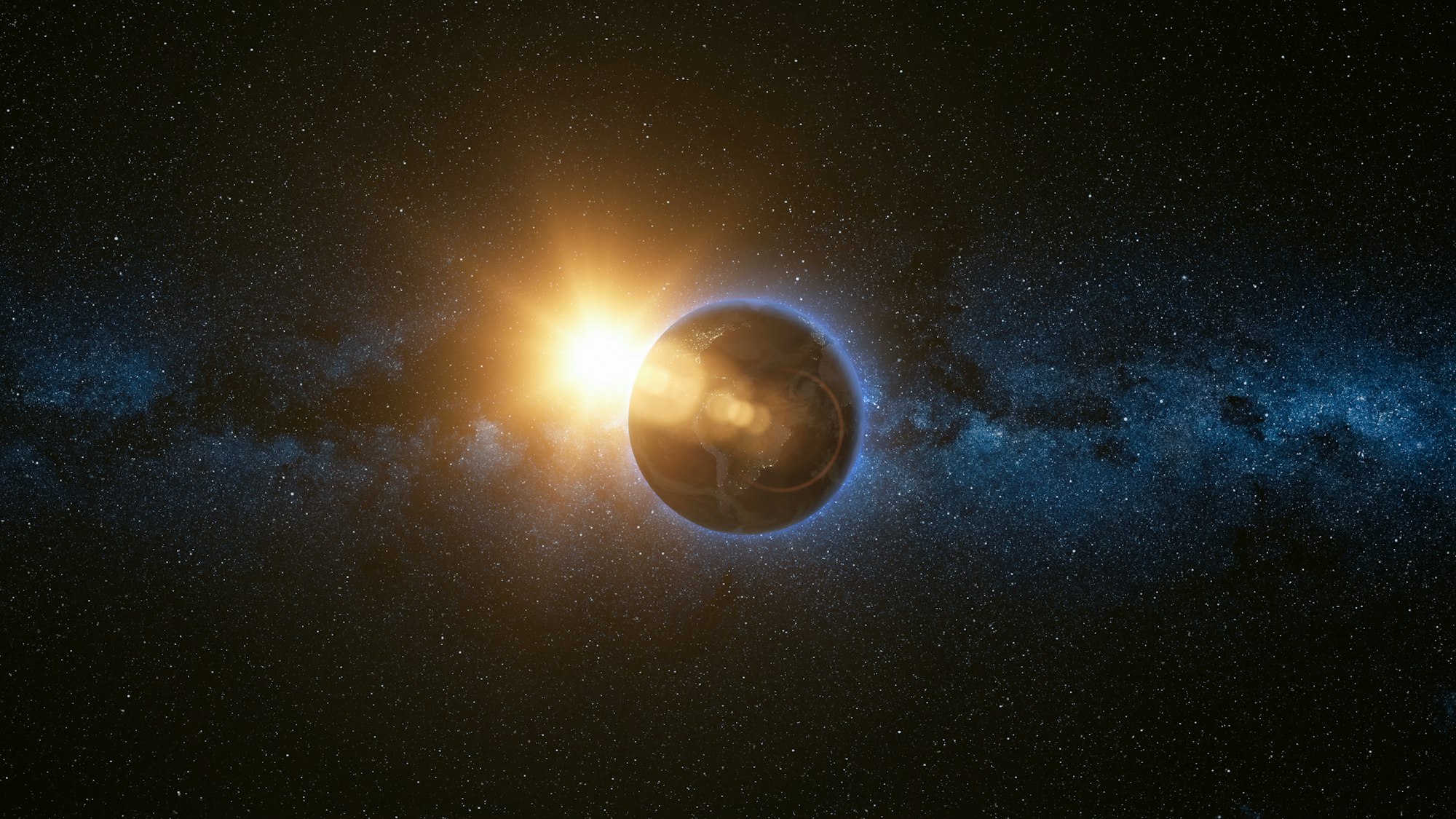
In today’s world, science often seems to be at the forefront of understanding the universe. From space exploration to quantum mechanics, modern physics has unveiled mysteries of the cosmos that were once thought to be beyond human comprehension. Yet, for many Muslims, there’s a deep and often overlooked connection between these scientific discoveries and the teachings of the Quran. In fact, the Quran, revealed more than 1400 years ago, contains verses that align with modern scientific principles, particularly in the field of cosmology. Let’s explore these fascinating parallels and see how science and faith intersect.
One of the most significant discoveries in modern physics is the fact that the universe is expanding. This concept, first proposed by Belgian astronomer Georges Lemaître in 1927 and later confirmed by Edwin Hubble’s observations in 1929, fundamentally changed our understanding of the cosmos. The expansion of the universe suggests that it originated from a single point, which led to the development of the Big Bang theory.
Amazingly, the Quran hinted at this cosmic truth centuries before these discoveries. In Surah Adh-Dhariyat (51:47), Allah says:
“And the heaven We constructed with strength, and indeed, We are [its] expander.”
The word “expander” (Arabic: mūsiʿūn) used here refers to the continuous stretching or expanding of the heavens. This verse aligns closely with modern cosmological findings that the universe is constantly expanding. For Muslims, this is a powerful reminder that the Quran contains layers of meaning that continue to be relevant as our scientific understanding grows.

Another groundbreaking idea in modern physics is the Big Bang theory, which describes how the universe began from an extremely hot and dense state and expanded rapidly. This theory suggests that everything in the universe was once part of a single entity before it exploded and separated into the galaxies, stars, and planets we see today.
The Quran touches on this concept in Surah Al-Anbiya (21:30):
“Have those who disbelieved not considered that the heavens and the earth were a joined entity, and We separated them and made from water every living thing? Then will they not believe?”
This verse refers to the heavens and the earth being once “joined” before being separated, a concept strikingly similar to the Big Bang theory. The fact that the Quran describes this separation of the heavens and the earth, something science has only recently uncovered, is remarkable. For Muslims, this not only strengthens their belief in the Quran as a divine text but also demonstrates that science and religion can coexist harmoniously.
As the verse from Surah Al-Anbiya continues, it mentions that water is the source of all living things. Today, biology confirms that water is indeed essential for life. Modern research shows that every form of life on Earth, from the smallest bacteria to the largest mammals, depends on water to survive. Scientists searching for life on other planets focus on finding water as the most critical indicator of potential life.

The Quran, however, stated this universal truth long before modern biology confirmed it. By acknowledging water as the basis of life, the Quran encourages Muslims to reflect on the interconnectedness of all living beings and the miraculous nature of creation.
In recent years, black holes have captured the imagination of scientists and the public alike. These mysterious entities, which form when massive stars collapse under their own gravity, are so dense that not even light can escape from them. The concept of a black hole, which wasn’t proposed until the 20th century, may have an interesting connection to the Quran.
Surah At-Takwir (81:15-16) refers to:
“So I swear by the retreating stars, those that run and disappear.”
Some Islamic scholars and scientists have speculated that these verses could be describing black holes. The phrase “retreating” and “disappearing” stars fits the description of a black hole, which essentially “retreats” from visibility as it consumes everything in its vicinity and becomes invisible. While this interpretation is open to debate, it’s an intriguing possibility that suggests the Quran may have alluded to the existence of black holes long before their discovery.
The Quran not only hints at scientific concepts but also encourages the pursuit of knowledge and reflection on the natural world. In Surah Al-Imran (3:190-191), Allah says:
“Indeed, in the creation of the heavens and the earth and the alternation of the night and the day are signs for those of understanding. Who remember Allah while standing or sitting or [lying] on their sides and give thought to the creation of the heavens and the earth, [saying], ‘Our Lord, You did not create this aimlessly; exalted are You [above such a thing]…’”

Muslims are encouraged to observe, ponder, and seek knowledge about the world around them. This quest for understanding is not limited to religious matters but extends to the study of the universe, life, and the laws of nature. The rich tradition of scientific inquiry within the Islamic Golden Age, when scholars like Ibn Sina (Avicenna) and Al-Khwarizmi made groundbreaking contributions to medicine, mathematics, and astronomy, is a testament to how Islamic teachings promote intellectual curiosity.
Far from being at odds, science and Islam share a profound connection. As modern physics continues to explore the mysteries of the cosmos, Muslims can find reassurance in the fact that many of these discoveries align with the timeless truths found in the Quran. Whether it’s the expanding universe, the Big Bang, or the essential role of water in life, the Quran provides insights that are remarkably consistent with modern science.
For Muslims in the West, this realization offers both inspiration and confidence. It demonstrates that their faith is not only compatible with scientific inquiry but also encourages it. As the Quran repeatedly calls on believers to reflect on the wonders of creation, it paves the way for Muslims to engage with science, not as something separate from their faith, but as a means of deepening their understanding of Allah’s creation.